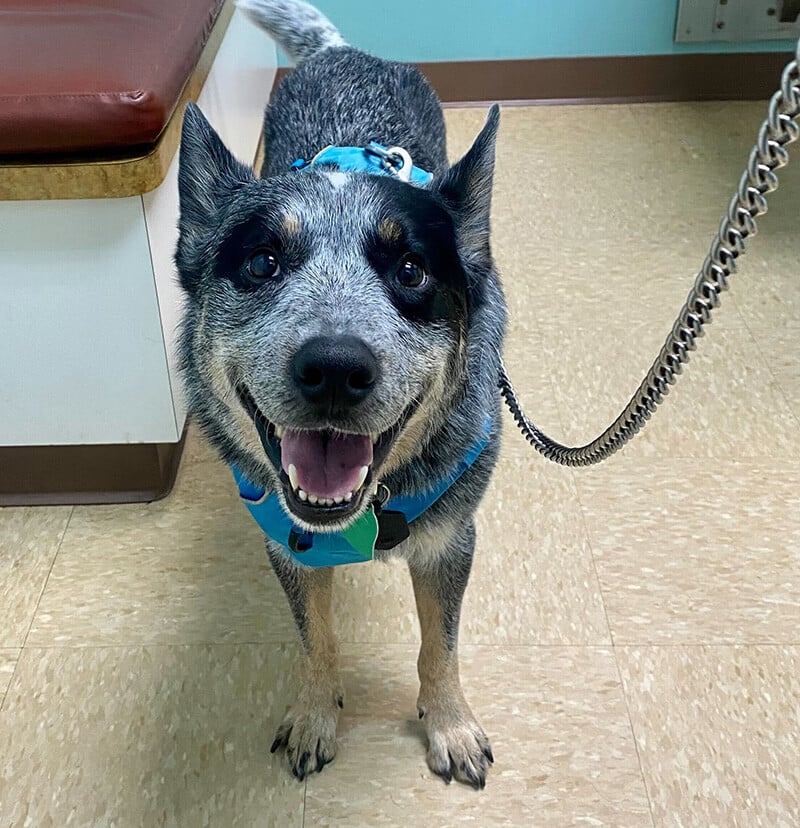
The Importance of Monthly Parasite Prevention

The Importance of Monthly Parasite Prevention
At Plainfield Veterinary Clinic, we know how important your furry friend’s health is. Through regular screening, preventive medications, and expert guidance, our veterinary team helps protect your furry friend from devastating parasites like heartworms, intestinal worms, fleas, and ticks.
By maintaining a consistent monthly parasite prevention routine, we can ensure your pet stays healthy and parasite-free. We believe that investing in quality parasite prevention is one of the most important steps you can take to protect your pet's long-term health and quality of life.
Common Signs of Internal Parasites in Dogs and Cats
Dogs and cats share many common signs of internal parasites. While both can be affected by the same parasites, some infections appear differently. Routine veterinary exams and monthly parasite prevention are essential for early detection and treatment.
Shared Symptoms in Dogs and Cats:
- Diarrhea
- Vomiting
- Weight loss despite a normal or increased appetite
- Distended abdomen (especially in puppies and kittens)
- Lethargy or Weakness
- Dull or poor-quality coat
- Scooting or excessive licking of the anal area (often due to tapeworms)
- Visible worms or worm segments in feces, vomit, or around the anus
Signs More Common in Dogs:
- Coughing
- Anemia (pale gums) due to hookworms consuming blood
- Increased appetite with weight loss
Signs More Common in Cats:
- Intermittent soft stool or chronic diarrhea
- Respiratory symptoms like wheezing or labored breathing
- Sudden collapse
Common Signs of External Parasites in Dogs and Cats
External parasites are another concern to be aware of when it comes to your furry friend. Unlike internal parasites, which live inside the body, external parasites reside on your pet’s skin and coat.
These parasites feed on blood or skin cells, leading to irritation, discomfort, and potential skin infections. While they may seem less threatening than internal parasites, they can transmit serious diseases and cause significant health issues if not addressed promptly.
These are some of the most common external parasites in dogs and cats and what to watch for:
- Fleas
- Ticks
- Mites (Causing Mange)
- Lice
If you observe any of these signs in your pet, please contact Plainfield Veterinary Clinic to speak to a team member:
- Excessive scratching, licking, or biting at skin
- Changes in coat appearance or texture
- Visible parasites or eggs in fur
- Skin inflammation or redness
- Scabs or hot spots
- Restless behavior
- Hair loss or bald patches
- Ear scratching or head shaking
Contact Us

Flea and Tick Prevention for Dogs
At Plainfield Veterinary Clinic, we provide comprehensive flea and tick prevention through proven, effective treatment options.
- Flea Collars – Worn around your pet’s neck to help prevent flea infestations. Kills on contact.
- Oral Tablets – Typically given once a month to control fleas and ticks. When the parasite bites your pet, it ingests the medication and dies.
- Spot-On Treatments – Placed between your pet’s shoulder blades once a month. Kills fleas and ticks on contact.
- Sprays – Sprayed onto your pet’s fur to control in-progress flea and tick infestations. Can last as long as 30 days.

Heartworm Prevention
While heartworms can be a major concern for dog and cat owners, Plainfield Veterinary Clinic offers comprehensive services to help safeguard your pet from heartworm disease:
Annual Heartworm Screenings
We recommend yearly screenings for all cats and dogs, regardless of their lifestyle. These screenings allow for early detection.
Monthly Heartworm Prevention
We provide a variety of easy-to-administer monthly preventatives that effectively protect your pet from heartworm disease. Consistent use of these preventatives is the most reliable way to safeguard your pet against this potentially fatal disease.

How to Help Your
Pet at Home
Good parasite prevention doesn't stop at the veterinary clinic. Taking proactive measures at home is essential for creating a safe, healthy environment for your pet and reducing their risk of parasite infection.
Here are some simple things you can do to help your pet at home:
- Clean your pet's bedding weekly in hot water
- Vacuum carpets and furniture frequently, especially in areas where your pet spends time
- Keep your home clean and dry to prevent flea populations from establishing
- Promptly clean up any indoor accidents to prevent parasite eggs from spreading
- Store pet food in sealed containers to prevent pest contamination
- Pick up waste from your yard daily to prevent soil contamination
- Keep grass trimmed short to reduce tick habitats
- Remove standing water from your yard to reduce mosquito breeding areas
Finally, remember to maintain regular veterinary check-ups and stay current with preventive medications. Home prevention works best when combined with professional veterinary care.
Take Action Against Parasites with a Wellness Exam

Take Action Against Parasites with a Wellness Exam
Your pet’s best defense against parasites starts with a personalized prevention plan. Schedule a wellness exam at Plainfield Veterinary Clinic, where our experienced team will tailor care to your pet’s lifestyle, environment, and health history—helping them stay protected and thriving year-round.
